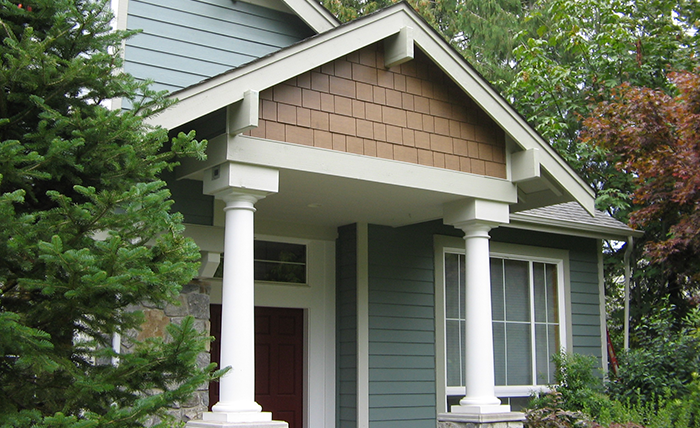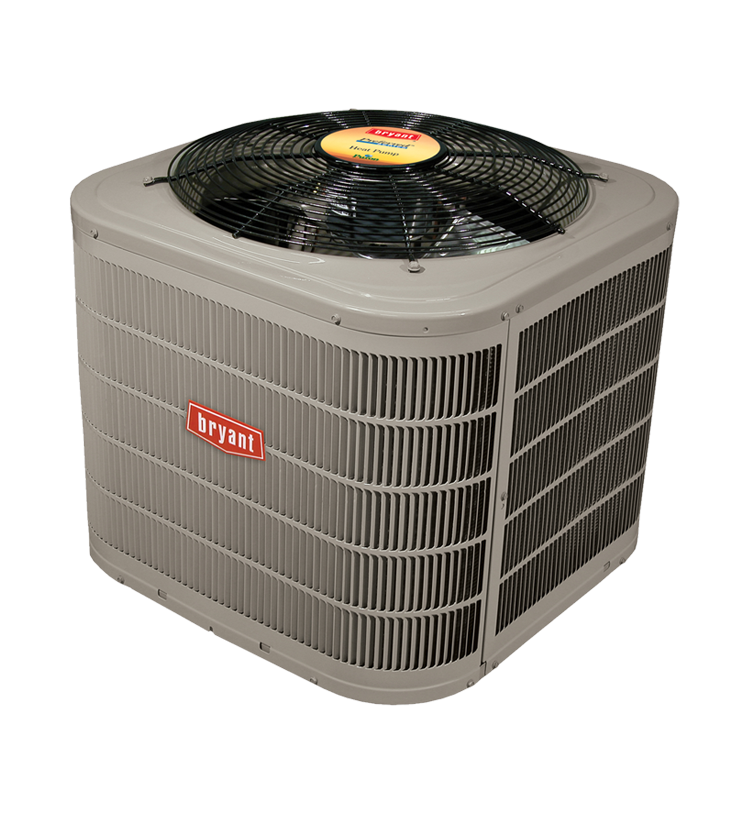
Check these 7 things before you buy a new home
A good home inspector is going to cover all of the basics; including making sure the faucets work, checking the electrical panel, and we hope, looking at the age and condition of your water heater. But you’d be surprised at how light most inspections are.
They don’t go deep in several major home systems like plumbing, heating and cooling because the inspectors are a) only there for a short time, b) not licensed or trained in those systems or c) because they would need specialized equipment. Unfortunately, a failed heating system or side sewer pipe can cost thousands of dollars later. So, if your inspector doesn’t cover these (and most don’t), we recommend that you do.
Check the main drains and sewer line.
Water may run easily inside the house but between you and the street may lie tree roots, collapsed or rotted pipe and potential for huge costly re-piping projects. A plumber can video inspect your sewer line to ensure you know what’s out there. The main drain may also need periodic cleaning, and if the seller hasn’t done it in a while, they can check and perform that too.
Taste and look at the water
Inspectors typically turn on taps and let them run while doing other reporting. Have a look at the first faucet or tub opened after it’s been sitting a while. If the water comes out with any rust, coloration or smell, that could indicate your pipes are bad.
Open the windows
Or more accurately see if they open or have been painted shut, are stuck or have broken parts.
Test the heating/air conditioning systems
Ask if they have had recent maintenance. Make sure they blow hot or cold in addition to just turning on. Look at how old that system is. Heating systems last about 15 years. If it’s that age, consider that you may need the funds to replace it soon.
Look under the carpet, especially in the basement
Check for mold and mildew and look at the condition of the floor below. Mold is a serious health concern and goes beyond the mere cost of replacing carpet.
Check the strength of the deck
So much inspection effort focuses on the inside of the house. If there is a deck, look for rusted nails and screws that may be weakened, and look at the wood itself for cracked boards and rot.
Inspect the chimney
Especially if you have a wood burning fireplace, a chimney inspection can save lives, not only from fires but carbon monoxide. Your general inspector may measure moisture around the chimney, which is good for finding cracks, but a professional chimney contractor can do a more thorough review of the overall condition and safety.
Don’t be shy in asking sellers to provide specialized inspections, plumbing or maintenances before closing on the sale. This is very common. And if they won’t you certainly can yourself. Sadly, some realtors may try to push you into not doing this because it can add negotiations.
When I purchased my Seattle home, I negotiated a furnace maintenance and chimney inspection into the purchase agreement as a condition of the sale. That gave me peace of mind. But even with that, my water heater tank burst within a week of moving in and the main drain backed up into the basement within 3 months. I didn’t have this list!
If you need plumbing or heating system inspection, Washington Energy Services provides these services, and we can fix or replace what you uncover, including plumbing and drain cleaning, re-piping and heating systems. Just call 800-398-4663.
Related products
Suggested Reading
- 2016
- AC
- AC Installation
- AC Units
- AFUE
- air conditioing
- air conditioner
- air conditioning
- air conditioning maintenance
- air conditioning service
- air conditioning tune-up
- air duct
- air duct cleaning
- air handlers
- air pollution
- Air Purification System
- air purifier
- Air Sealing
- angie's list
- award
- basement Finishing
- Bathroom remodel
- BBB
- BBB Accredited Business
- before and after
- Best air conditioner
- best filters
- best generator
- best locks
- best water heater
- best window install
- boilers
- bryant
- Bryant AC
- bryant furnace
- bryant heat pump
- christmas lights
- clean air
- clothes drive
- Clothes For Kids
- coat drive
- combi-boiler
- comfort
- community
- Construction
- contractor
- contractors
- Cooling
- Cooling equipment
- Coronavirus Protection
- custom
- daikin
- deals
- discounts
- DIY
- Donation
- Donations
- door hardware
- door installation
- door replacement
- Door Transformations
- doors
- drafty home
- drain cleaning
- Duct Cleaning
- Duct Cleaning Services
- ductless
- Ductless heat pump
- ductless heat pump. mini-split
- Ductless heat pumps
- ductless heating system
- ductless heating systems
- ductless installation
- Ducts
- earth day
- eco friendly
- EER
- election
- electrical inspection
- emergency
- energy
- energy conservation
- energy efficiency
- energy efficiency rebates
- energy efficient AC
- energy efficient air conditioner
- energy efficient home
- energy efficient hvac
- energy efficient HVAC Systems
- energy efficient windows
- energy myths
- energy saving
- energy saving home products
- energy star
- energy tax credit
- environmentally friendly
- exterior doors
- fall
- fall weather
- fiber cement
- fiberglass doors
- filter
- filter change
- financing options
- fireplace
- fireplace insert
- fireplace repair
- fireplace tune-up
- front door
- furnace
- furnace filters
- furnace install
- furnace maintenance
- furnace mileage
- furnace problems
- furnace replacement
- furnace service
- furnaces
- Garage door replacement
- gas fireplace
- gas fireplace inserts
- Gas Fireplace Makeover
- gas furnace
- generators
- going green
- good business practices
- green solutions
- Guardian Maintenance Club
- heat
- heat pump
- heat pump installation
- heat pump maintenance
- heat pump vs ac
- Heat Pumps
- heat pumps maintenance
- heat wave
- Heating
- Heating and Cooling equipment
- heating and cooling systems
- Heating Brands
- Heating Control
- Heating equipment
- Heating System Tuneup
- heatwave
- HEPA filter
- history
- holiday
- home
- home buyer
- home energy
- home energy efficiency
- Home energy efficiency solutions
- home exterior
- home heating
- home improvement
- Home Improvement Rebates
- home improvement repair
- home inspection
- home maintenance
- home maintenance checklist
- home maintence
- home performance
- home protection
- home repair
- home safety
- home upgrade trends
- home upgrades
- home value
- homeowners
- honeywell
- hot water
- hot water heater
- houzz
- how to
- HVAC
- HVAC Contractor
- HVAC Contractors
- hvac system
- IAQ
- indoor air quality
- infographic
- install
- install furnace
- insulation
- intellihot
- interior doors
- kids
- Kitchen face lift
- LED light
- LED lights
- light bulb
- light bulbs
- locks
- mailbag
- maintenance
- march
- membership
- mini-split
- modulating furnace
- money saving
- money savings
- navien
- new door installation
- new home
- New homeowner
- new windows
- news
- pacific northwest weather
- patio doors
- pets
- plumbing
- plumbing inspection
- power
- power outages
- precision tune up
- preventative
- Pro Tips
- Programmable Thermostat
- Programmable Thermostats
- propane
- PSE Award
- PSE Energy
- PUD
- Q & A
- Ratings
- rebates
- refund
- REME Halo
- Remodel
- remodeling hacks
- Replacing Heating System
- reputation
- Safe Home Insulation
- sale
- save energy
- Saving money
- scam
- scams
- seattle
- Seattle Weather
- SEER
- service
- services
- Siding
- Siding replacement
- sliding glass doors
- Smart Home
- Smart thermostat
- smoke
- Solar Attic Fan
- solar power
- Solar Powered Light Strand
- sound
- spring
- standby generators
- storm doors
- summer
- summer fires
- Summer heat
- Summer home
- super service 2016
- tank water heater
- Tank water heaters
- tankless tune ups
- tankless water heater
- tankless water heaters
- tax rebate
- thanksgiving
- Thermostat
- tips
- trends
- tune-up
- upgrade
- upgrade cooling
- upgrade heating
- utilities
- utility rebates
- veterans
- Washington Energy
- washington energy services
- water conservation
- Water Heater
- water heater installation
- water heater maintenance
- water heater repair
- water heaters
- water leak protection
- Wildfire Season
- wildfire smoke
- window
- window energy efficiency
- window install
- window maintence
- window remodel
- window repair
- window replacement
- windows
- winner
- winter
- zone heating
- Air Conditioning
- Air Purifiers
- Cooling
- Doors
- Ductless heat pump
- Environmental
- Fireplace
- Furnace
- Gas fireplace
- Generators
- Heat pump
- Heating
- Home improvement
- How to
- HVAC
- Indoor Air Quality
- Insulation
- News
- Plumbing
- Rebates
- Seattle
- Service near you
- Siding
- Smart Home
- Tank water heaters
- Tankless water heaters
- Tips to save money
- Uncategorized
- Wildfire Season
- Windows


